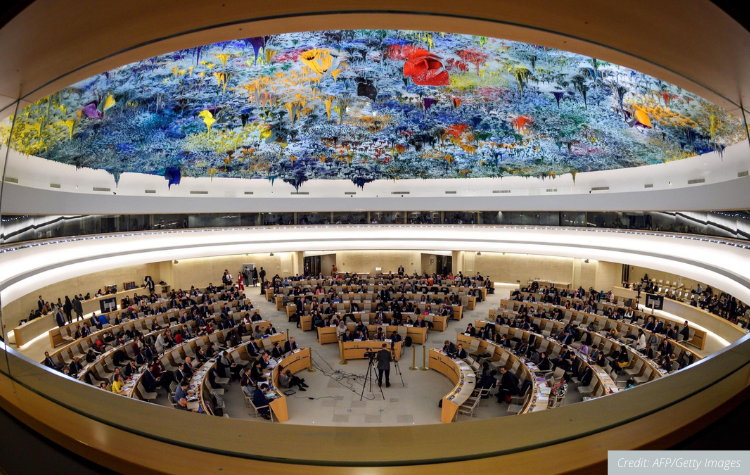50th regular session of the UN Human Rights Council
Item 3: Interactive dialogue with the Special Rapporteur on the rights to freedom of peaceful assembly and of association
Delivered by Ahmed Adam
On behalf of Asian Forum for Human Rights and Development (FORUM-ASIA), CIVICUS – World Alliance for Citizen Participation and World Organisation Against Torture (OMCT)
17 June 2022
Mr. President,
We welcome the Special Rapporteur’s important report on civil society’s access to resources.
Systematic restrictions on civil society’s access to resources often represent one of the first indicators of overall deterioration of human rights situation and trends towards authoritarian rule as seen in many Asian countries, in particular, in India and Bangladesh.
In India, over 6000 NGOs have been banned from accessing foreign funding under the draconian Foreign Contributions (Regulations) Act, 2010 (FCRA) effectively forcing them to cease their operations. The law has been used particularly to silence human rights NGOs critical of the government. The amendments made to FCRA makes sub-granting of funds to grassroot organisations impossible, affecting many beneficiaries.
Early this month, Bangladesh authorities have arbitrarily cancelled the registration of prominent human rights NGO, Odhikar, after years of crippling restrictions on its operations under Foreign Donations (Voluntary Activities) Regulation Law 2016 for its legitimate human rights work in the country. This has had a serious chilling effect on civic and democratic space in the country, forcing many others to resort to self-censorship.
Many other countries in the region are in the process of adopting similar measures that would effectively decimate civil society. We are particularly concerned about the impending adoption of a new law on NGOs in Thailand.
In this context, can the Special Rapporteur elaborate on your engagement with countries such as India and Bangladesh, and their responses, where such measures have had serious implications for fundamental freedoms and civic space.
Finally, we welcome the Special Rapporteur’s timely follow up report on his visit to Sri Lanka amid nationwide peaceful protests in response to the country’s economic crisis precipitated by failure of governance and the rule of law, and rollback of fundamental freedoms.
Can the Special Rapporteur further elaborate on obligations of authorities to uphold the right to peaceful protests and ensure accountability, especially in situations such as those seen in Sri Lanka on 9 May where supporters of the embattled ruling party attacked peaceful protestors while the security services looked on?
Thank you




